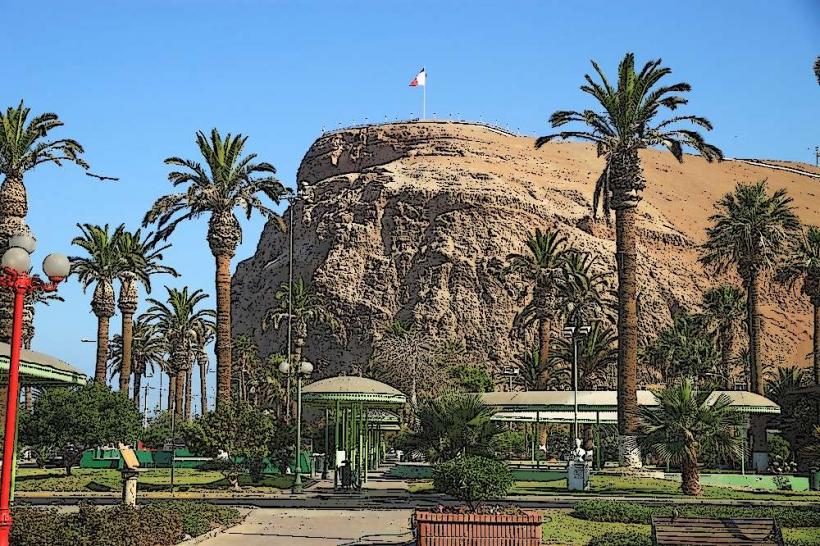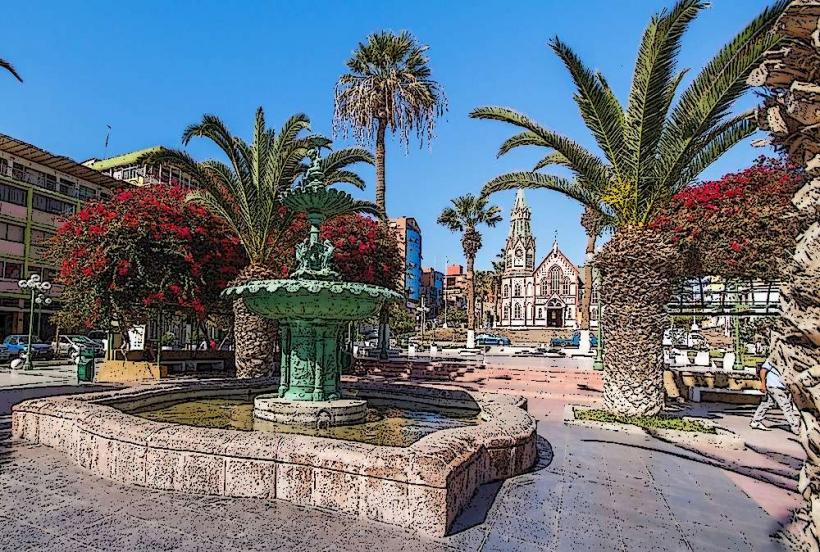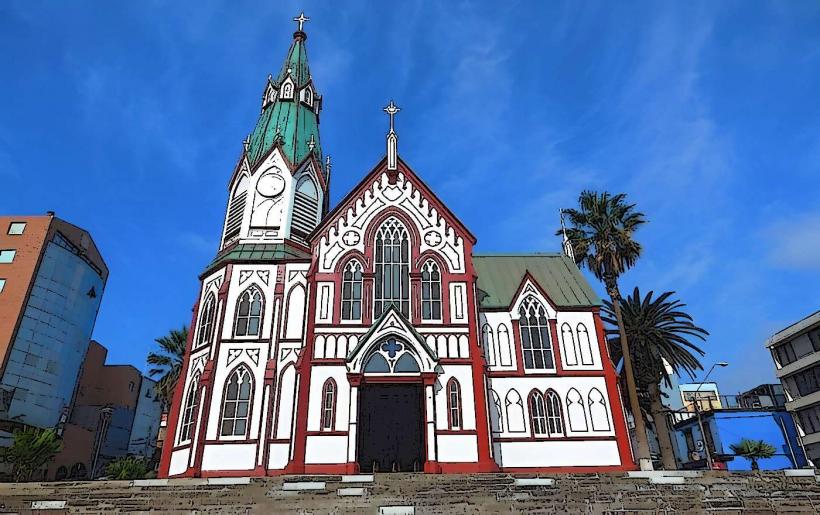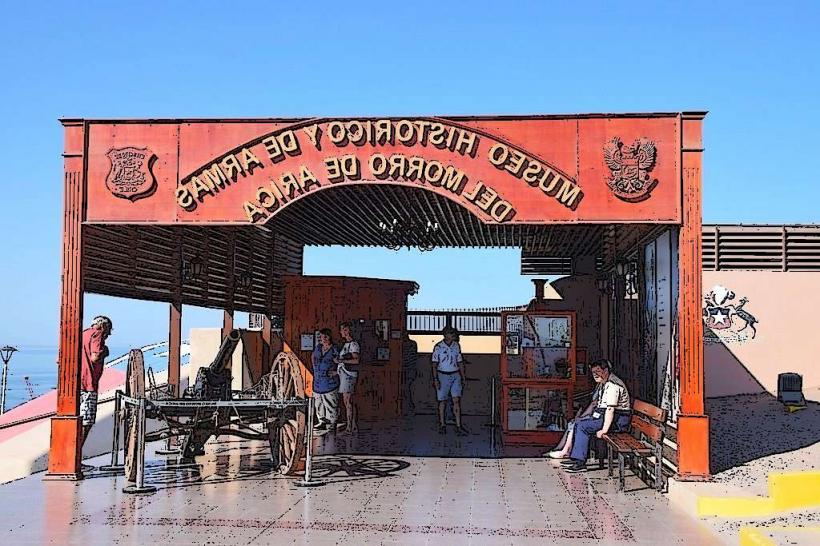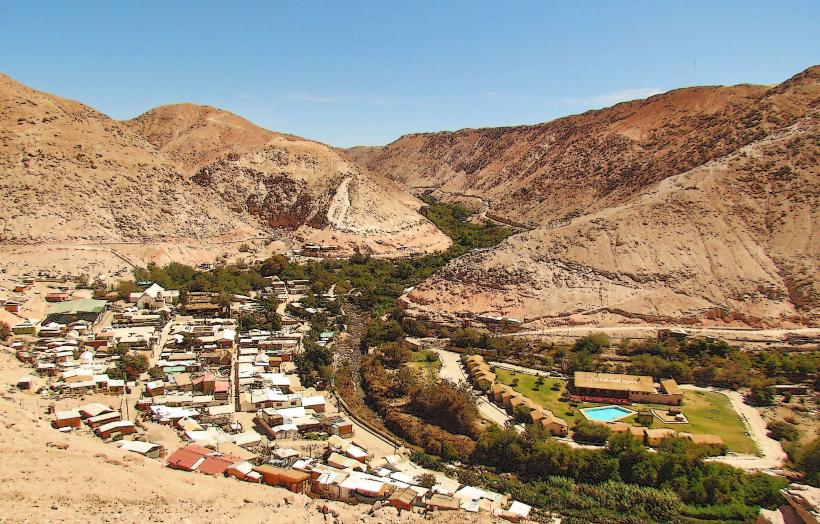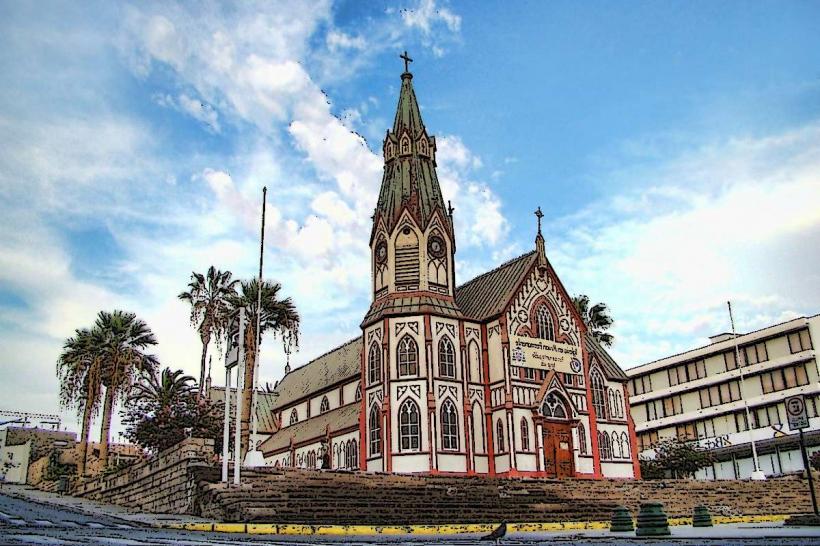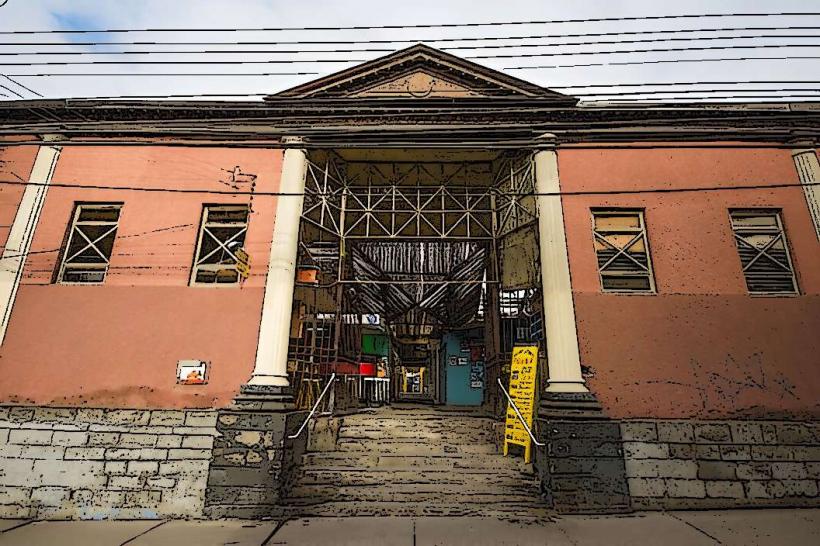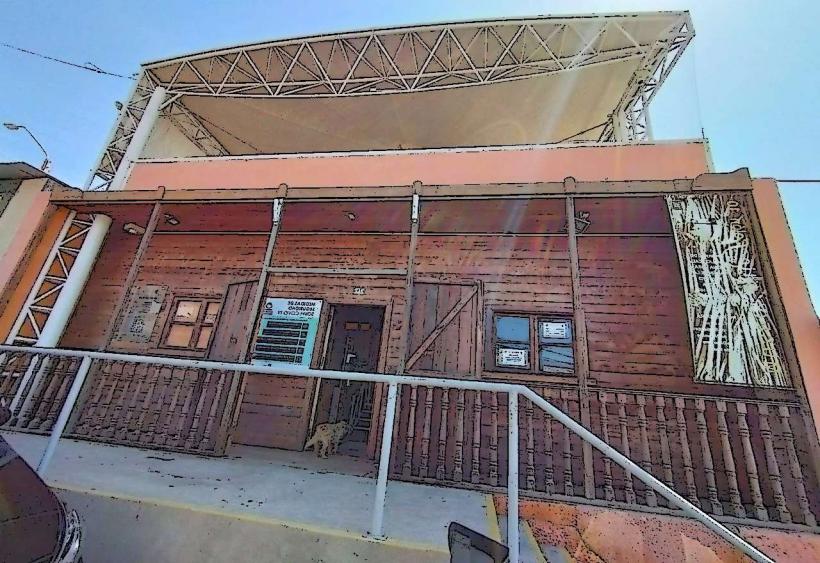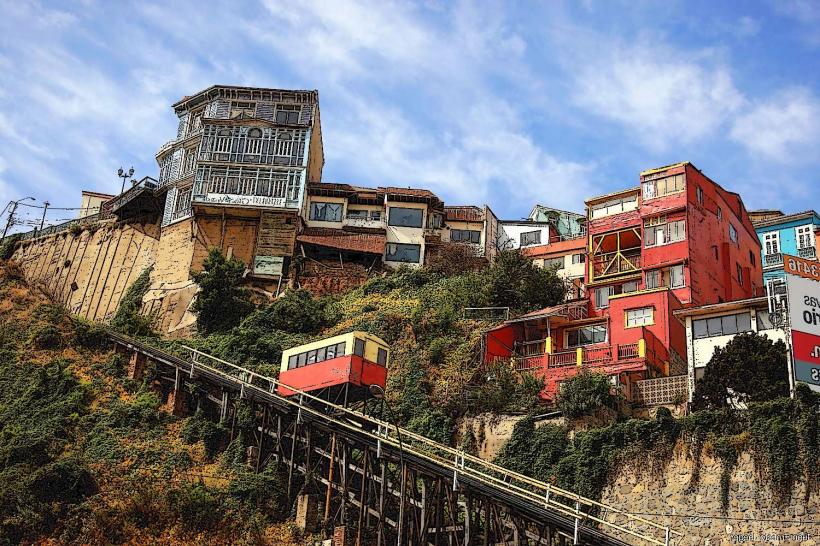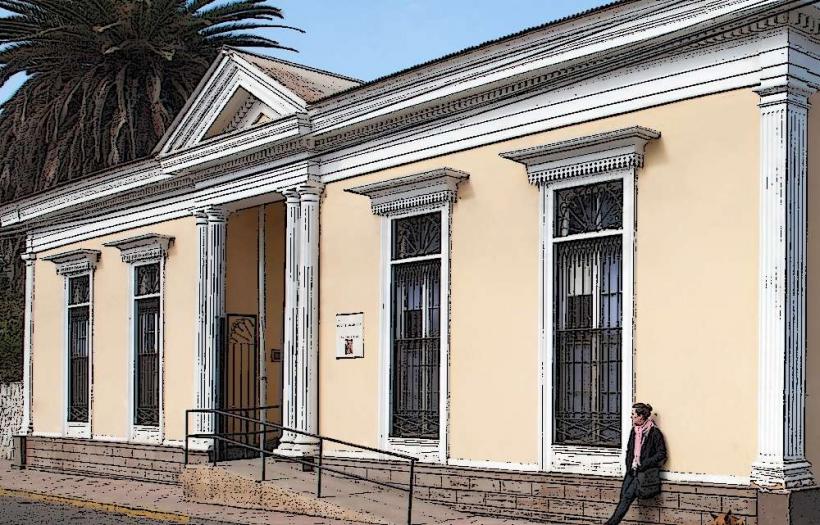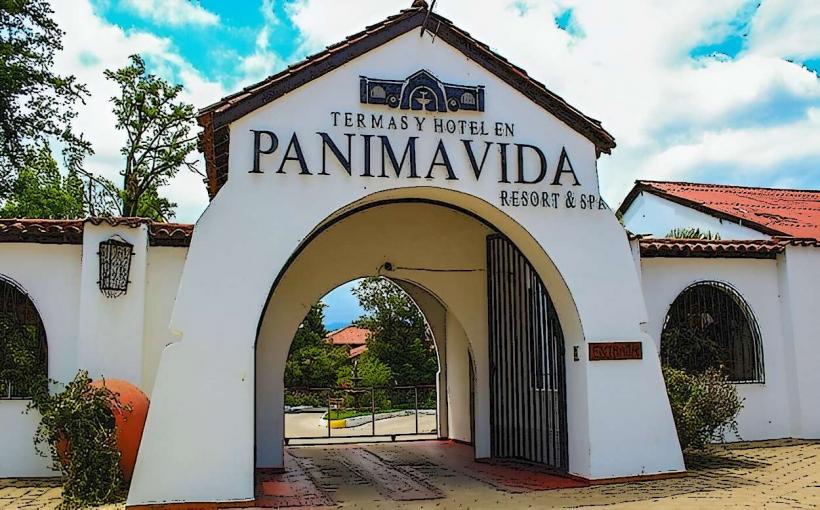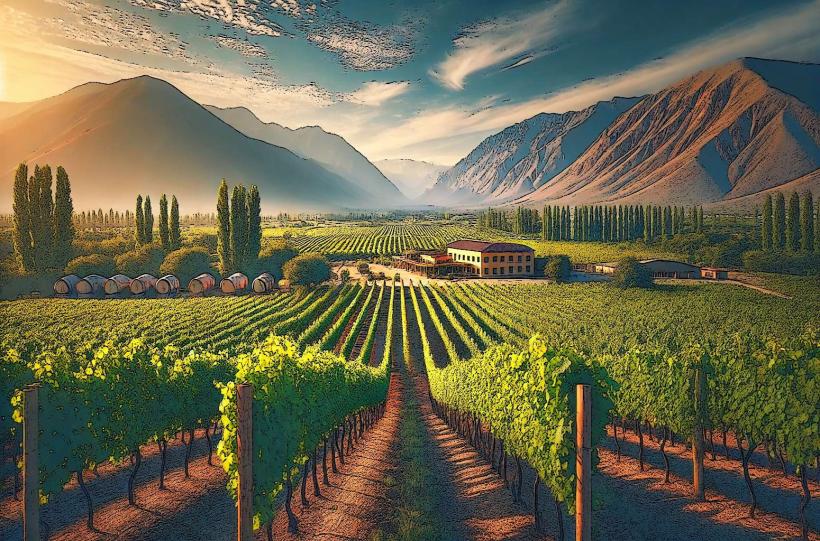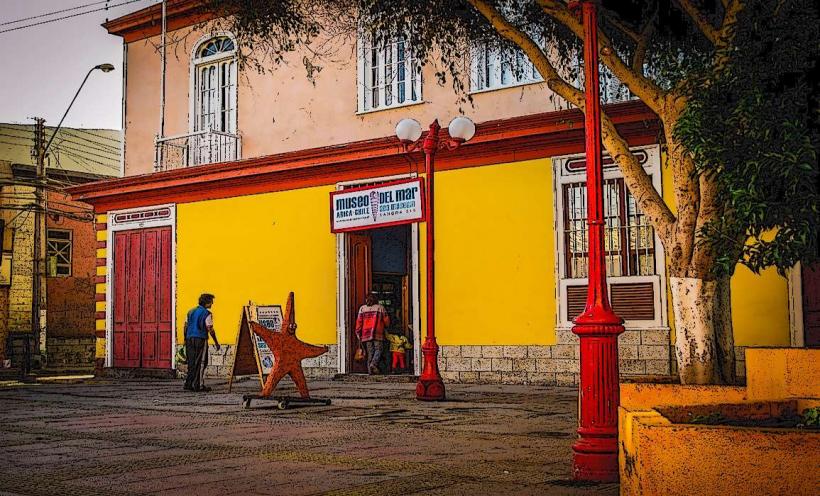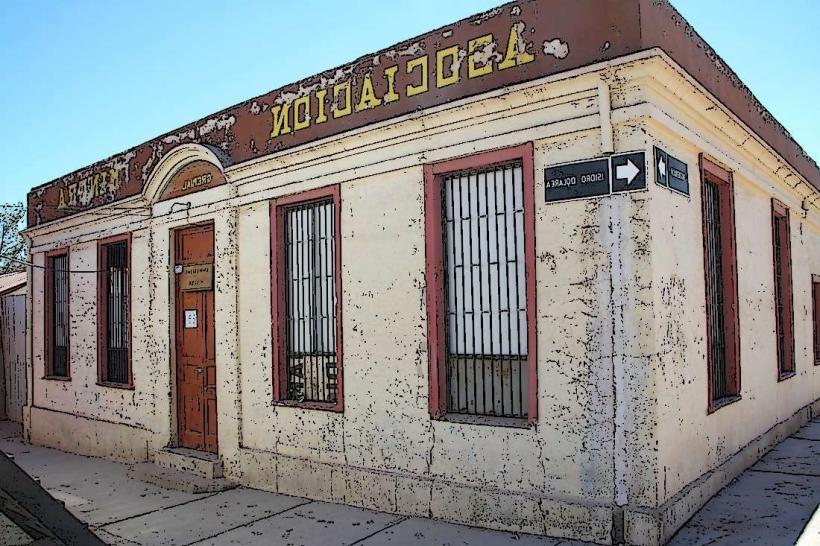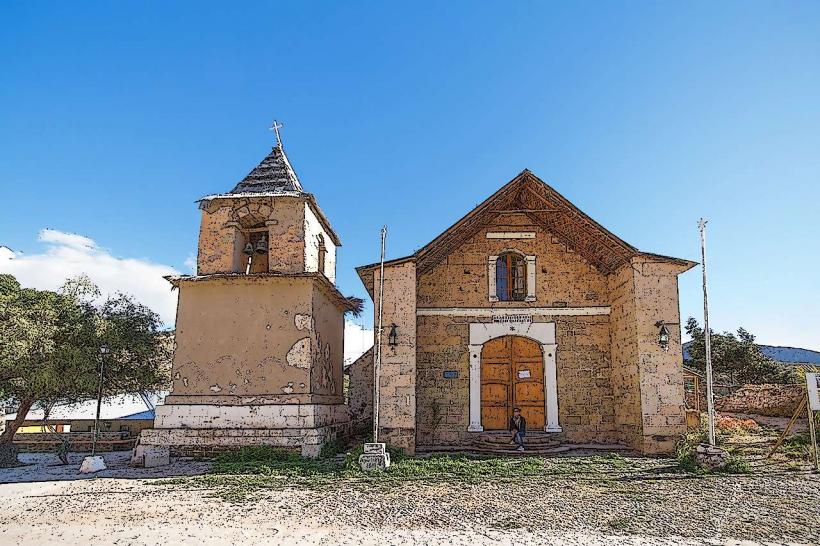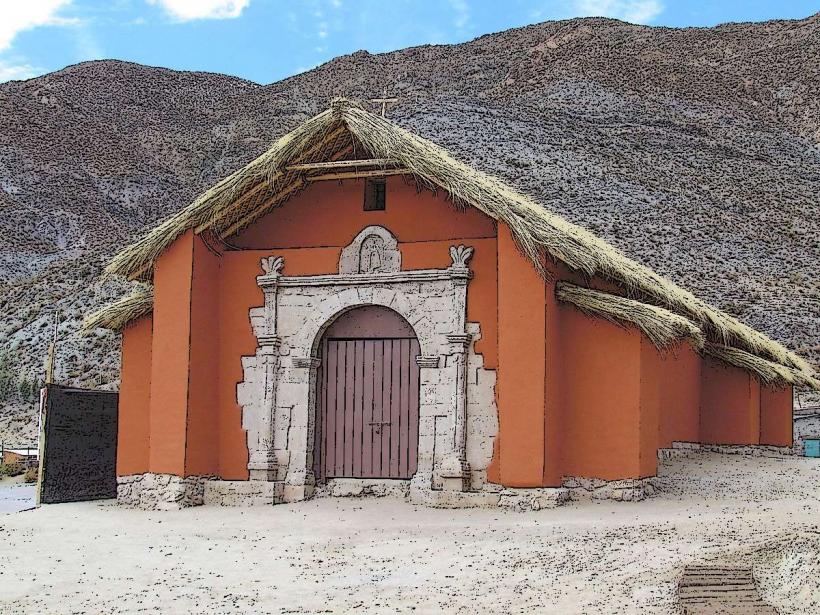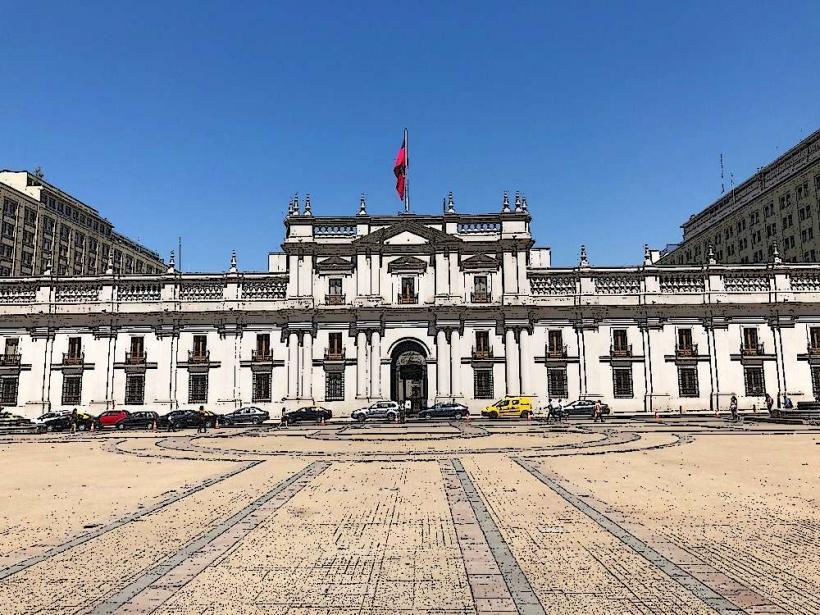Information
Landmark: Iglesia de la Virgen de la CandelariaCity: Arica
Country: Chile
Continent: South America
Iglesia de la Virgen de la Candelaria, Arica, Chile, South America
The Iglesia de la Virgen de la Candelaria is a Roman Catholic church located in the city of Arica, Chile.
This religious structure serves as a significant point of worship and historical reference within the urban landscape.
Visual Characteristics
The church features a single nave constructed primarily from adobe brick, with a pitched roof covered in red clay tiles. Its facade is painted a pale yellow, contrasting with white trim around the windows and doorways. A simple bell tower, also constructed of adobe, rises from the front of the building. The interior walls are whitewashed, and the altar area is adorned with religious iconography.
Location & Access Logistics
The Iglesia de la Virgen de la Candelaria is situated at the intersection of Calle 2 de Mayo and Calle General Lagos in Arica's city center. It is approximately 0.5 kilometers west of the main Plaza Colón. Public parking is available on adjacent streets, though it can be limited during peak hours. Several local bus routes, including lines 1, 2, and 7, stop within a two-block radius of the church.
Historical & Ecological Origin
The current structure dates back to the late 19th century, with construction completed around 1875. It was built to replace an earlier chapel that had fallen into disrepair. The church was designed to withstand the region's seismic activity and arid climate. Its purpose has always been to serve as a parish church for the local community.
Key Highlights & Activities
Visitors can observe the church's architectural style and interior religious art. Mass services are held regularly. The church is a focal point for local religious festivals, particularly during the Candelaria festival in February.
Infrastructure & Amenities
Restrooms are available for visitors. Limited shade is provided by the building's structure. Cell phone signal (4G/5G) is generally strong in this urban area. Food vendors and small cafes are located on nearby streets.
Best Time to Visit
For photography, the morning light offers direct illumination on the facade. The best months for visiting are generally from March to November, avoiding the slightly cooler winter months of July and August. There are no tide-dependent access requirements.
Facts & Legends
A local legend suggests that a small, ancient wooden statue of the Virgin Mary, predating the current church, was found miraculously preserved after a significant earthquake in the early 20th century, reinforcing its importance to the community.
Nearby Landmarks
- Plaza Colón (0.5km East)
- Museo Arqueológico San Miguel de Azapa (12km East - requires transport)
- Morro de Arica (1km South)
- Mercado Central de Arica (0.7km Northwest)
- Arica Cathedral (0.6km East)

